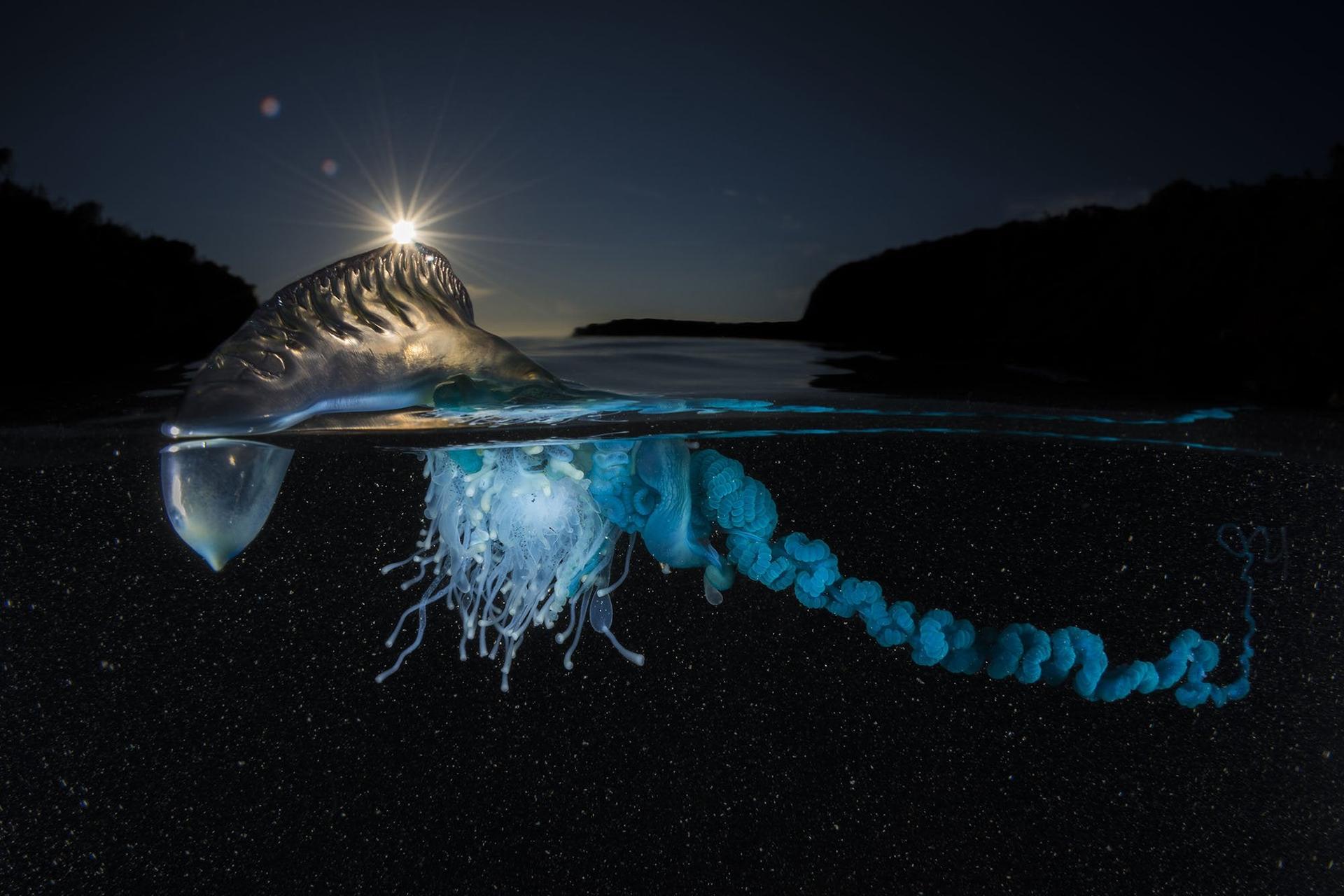The Ghost in our Shell

Portuguese Man-o-War, also known as bluebottle and floating terror is a weird marine organism that is actually not an organism. It’s a bunch of genetically distinct organisms with distinct nervous systems working together to form another organism. Although it’s commonly found on beaches (which leads to the closing of the beach because of their venomous tentacles) we know very little about them. Not because of lack of interest, but because of lack of making sense! Scientists still can’t figure out if they are a group of colonial organisms or a single organism made of specialized tissues (like we are). They have a weird overlap of both of these but we don’t know how much. They are named after 18th-century sailing warships that they roughly resemble.
Speaking of ships, let’s imagine a ship that has its parts replaced every year until all of the parts get replaced, is it the same ship? Now let’s imagine a new ship made out of all the replaced parts of the previously mentioned ship, which ship is THE ship? This is the famous thought experiment called, Ship of Theseus. It tries to understand what makes us … well, us!
So what DOES make us, US? Memories and experiences? What if we lose all our memories, are we still, us? If not, what if we get back all the memories that we lost? And even if we don’t lose our memories, our brain cannot accurately remember everything anyways, our memories have gaps, and our brain fills those gaps by false/made-up memories to maintain a sense of continuity, and these gaps only keep increasing with time. And then there’s the fact that our memories are highly unreliable, biased by the emotions of the moment, mental state and other psychological factors. So is it our body? All the bones in our body get replaced every 10 years, all the cells get replaced every 7 years and 98% of atoms in our body get replaced every year. Where do these particles come from and where do they go?!
Joni Mitchell in her ethereal song Woodstock, sang:
We are Stardust…
― Joni Mitchell
Turns out she was right! Everything we are and everything in our entire universe originated from Stardust! The stardust finds its way into plants and from there into the nutrients we need for everything. And it continually floats through us today, connecting us to the universe, rebuilding us over and over again throughout our lifetime. Until our soul or whatever, this body, a shell for, decides that it’s time to leave.
And, while, all stars are beautiful, isn’t our star, the Sun, especially beautiful? The different shades of sky at dusk, fondle our emotions in a way that cannot be accurately put to words.
It makes us question how our universe has the exact right values for various fundamental constants that guide the particles that make everything, and more importantly how these particles came together on this very planet to form the first cells which then merged together to form simple bio-robots which eventually came to form the complex creatures that can enjoy the sunsets.
How does our brain turn a certain range of wavelengths of the electromagnetic spectrum to the perceived beauty of a sunset? There’s no known combination of words in any known language that can spontaneously reproduce the redness of sky in someone else’s mind. We cannot explain colours to someone who is blind and has never seen colours in their life, or describe a taste, smell etc. Philosophers call these raw ineffable feelings, Qualia, and our inability to describe these internal qualia, Explanatory Gap.
Some philosophers like Daniel Dennett believe that our inability to express our internal qualia might be a failure of our language, not necessarily because they will always be impossible to share. Given millions and billions of words used in just the right way, it may be possible to adequately describe a colour such that a blind person could see it for the first time. And that might bring us one step closer to the answer to what is The Ghost in our Shell, the hard problem of consciousness.
As Pierre Teilhard de Chardin once said:
We are not human beings having a spiritual experience. We are spiritual beings having a human experience.
― Pierre Teilhard de Chardin